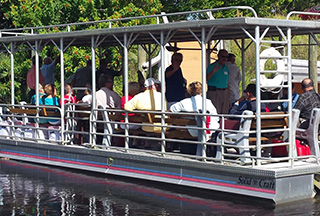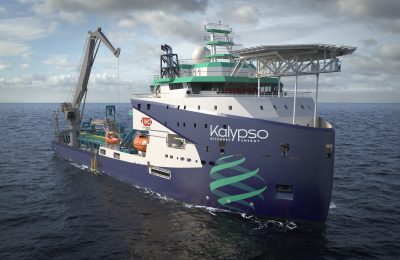As south Florida’s winter tourist season warms up, so has the debate over a new generation of online boat hiring services. Investigators have gone undercover to catch unlicensed captains, and Miami officials have blocked a move by the pioneering ride-sharing service Uber to shuttle customers by water.
Using the same kind of online and mobile device-accessible technology, a host of boat ride booking services have sprung up in Florida, offering everything from water taxi service to yachts and dive trips. Those entrepreneurs are looking to reinvent the business of transport on water as Uber is doing on land – but the Coast Guard and state regulators have something to say about that.
In the Florida Keys, professional captains are worried enough about unlicensed competition that they met with law enforcement from the Florida state Fish and Wildlife Commission, which has wide authority over commercial boat operations in state waters. “It’s websites where you can sign up to with someone you don’t know. We’ve had a couple of these websites solicit with us,” said Capt. Brice Barr, board president of the Key West Charter Boats Association.
“If it’s just Joe Schmoe on the weekend, trying to pay for his fishing trip (with passengers), that’s trouble. Does he have the license? That’s what it boils down to,” Barr said.
In late summer 2015 the Coast Guard Seventh District based in Miami warned that it was going after unlicensed captains who solicit via rideshare apps, with potential penalties up to $30,000. Florida’s state license and permit requirements for captains are quite strict, and the Key West captains got a quick response.
“The Key West Charter Boats Association has reached out to the Florida Fish and Wildlife Commission for its help to combat the growing problem of illegal charters, and the FWC has agreed to assist,” said Capt. David Dipre, the commission’s lead officer in the Keys’ Monroe County.
 UberBOAT interface from the company's trial with Boston Harbor Cruises. Uber image.Dipre’s unit hired a computer and Internet specialist to focus on the investigation. While he would not say which specific services or websites they are tracking, Dipre said the investigation is very active.
UberBOAT interface from the company's trial with Boston Harbor Cruises. Uber image.Dipre’s unit hired a computer and Internet specialist to focus on the investigation. While he would not say which specific services or websites they are tracking, Dipre said the investigation is very active.
“If we find people using these apps to run unlicensed trips we will cite them. We have already sent some people on charters,” he said.
In the Tampa Bay area, the ride service startup Coastalyfe is working with city and county transit planners and existing water taxi companies for ways to integrate its online booking service into the larger regional need for shuttling visitors around Tampa-St. Petersburg and beach towns like Sarasota, said company CEO Clifford Nees.
Less than two months after its Miami startup, the service BoatDay announced in October it was partnering with Uber, allowing users to both book a boat ride and call a car to take them to the dock.
But those ventures are getting a rougher ride in Miami. Miami-Dade County officials shut down Uber when it tried to make a waterborne foray into Miami Beach in early December.
Uber, which had earlier trialed water taxi services in Boston, offered its dial-a-boat service during the Dec. 3-6 Art Basel show in Miami Beach, promising to whisk visitors across Biscayne Bay to avoid traffic jams during the event. But county officials, who have withheld landside permits for Uber’s car drivers and regularly ticket them, likewise refused permission for Uber’s docking operation.





